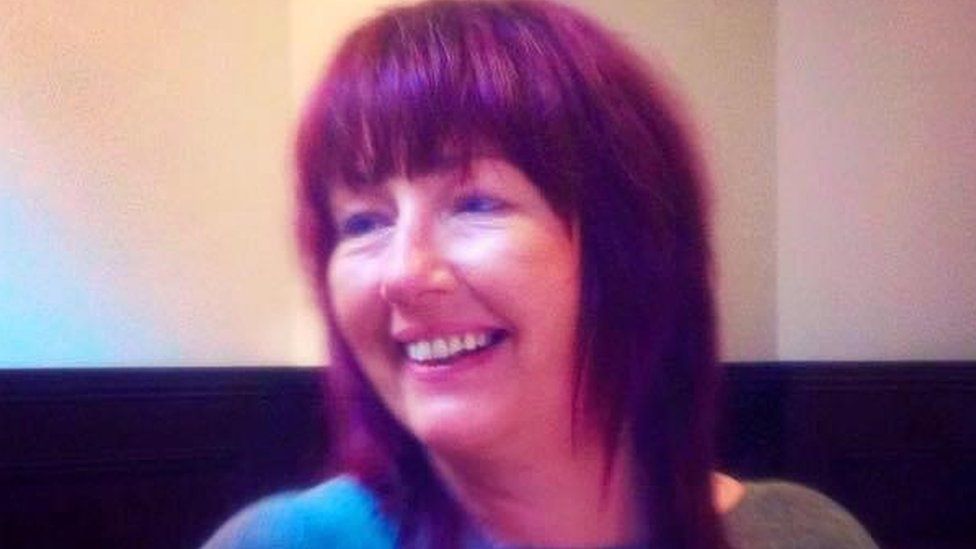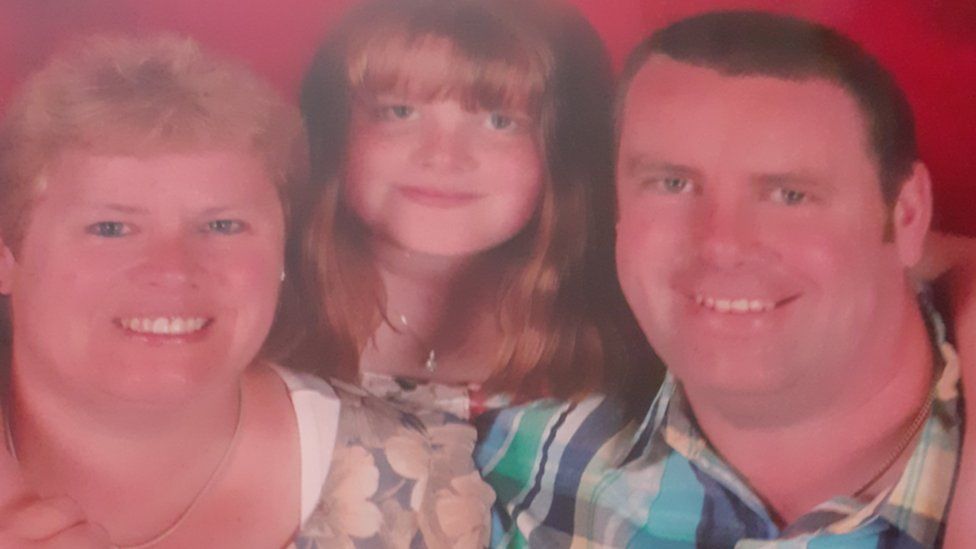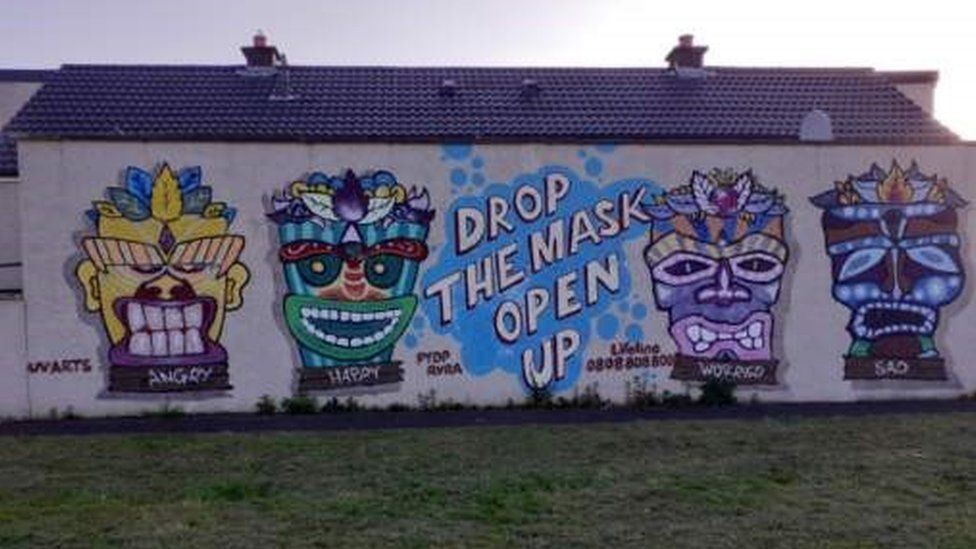
Life may appear to be returning to a new "normal" as the Covid-19 lockdown eases.
While many relish the idea of going back to their more usual routines, some are filled with dread.
Naomi Quinn, 45, is anxious about a reduction in restrictions.
"My fear is, as soon as things go back to normal people won't wear their masks, sanitise their hands and they might disregard the rules," she explained.
Naomi, who lives with her daughter, Megan, in Swatragh, a small village in County Londonderry, has been dealing with anxiety for years.
She said: "When you're in the middle of a panic attack, it's so real. In that moment, I believe I'm having a heart attack or a stroke.
"I've been told I might not be free of it.
"Sometimes social situations trigger it, somebody might ask me to do something or perform a task."
Naomi said lockdown had made her slow down.
"My anxiety has gotten better, mainly because there hasn't been as much stimulus in my life. There is a lot to be said about having a simple life."
According to a research paper recently released by the Northern Ireland Assembly, mental health problems associated with the Covid-19 pandemic and its aftermath are "likely to be profound and felt for many years",.

What is social anxiety?
Social Anxiety Disorder, or social phobia, is the overwhelming fear of social situations.
It typically develops during teenage years but can have long-term affects if it is not treated.
Sometimes it can be triggered by everyday activities such as meeting strangers, speaking on the phone or even going to work.
Those with it may experience symptoms like feeling sick, sweating, trembling or even panic attacks.
Many people with social anxiety often have other mental health issues such as depression, generalised anxiety disorder or panic disorder.
Source: NHS


Behind the mask
For Warren Elder, 48, lockdown has given him the time to better understand his own anxiety and work on his own personal projects.
Over lockdown, he started writing a self-help blog called The Man Behind the Mask, which is now published weekly in the Northern Constitution newspaper.
"I was only planning to write a couple of Facebook posts to share how I was feeling. It sort of took off from there."
Warren lives in Limavady, County Londonderry, with his wife Ethna and daughter Tamsin.
He is a civil servant and a board member on the Limavady Initiative for the Prevention of Suicide (LIPS).
"The blog is about an ordinary man's struggle with mental health and how there's light at the end of the tunnel," he said.
"If I could help one person with my blog, that's all I was trying to do."

He said that before lockdown, everyone saw him as a strong character and assumed he was okay.
"They didn't know what was going on behind the mask," he added.
"The past year has been good for me. Not being able to get out and about as much, meant I could refocus on myself and recharge my own batteries."
Warren hopes the blog will help other men open up about their own mental health.
"A lot of men think they're weak if they turn around and say they are suffering from mental health, whereas I see it as a strength," he said.
"It shows great strength and power to admit that you are struggling."

Dr Michael Duffy, a senior lecturer at Queen's University, Belfast, and director of its master's programme in Cognitive Behavioural Therapy, said most people will be able to adapt to life after lockdown, but those with anxiety could struggle.
"Social anxiety is maintained by false beliefs that certain situations are threatening," he said.
"It's the most common of all the anxiety disorders, driven by exaggerated negative beliefs about how the individual will "think" he-she will perform in a social setting.
"When someone with anxiety reduces their social interactions, they tend to focus on themselves - how they might look or sound - when that attention focuses in on itself, it makes them feel even more anxious and gets in the way of spontaneous social interaction."
The NHS website suggests ways to manage anxiety, including:
- Speaking to a close friend or family member
- Contacting your GP and asking to be referred to a therapist
- Reaching out to one of the many voluntary mental health charities or support groups
- Exercising, doing activities such as walking, running or yoga can help reduce stress
- Learning sleep techniques if you have difficulty falling asleep
- Eating a healthy diet
Dr Duffy said the most effective treatment for anxiety is Cognitive Behavioural Therapy (CBT) - a talking therapy which can help people manage their problems by changing how they think and behave.
"Therapy is about trying to help people understand what drives the anxiety," he said.
"With CBT, we design social experiments that set out what happens when we challenge these beliefs and change the behaviours that anxiety brings on.
"Try to see the end of lockdown as an opportunity to engage with life in a different way. Rather than see it as a threat, see it as an opportunity to reconnect again for the things that make life worthwhile.
"With the proper help, people can recover from anxiety and reclaim their lives."
If you, or someone you know, have been affected by any of the issues in this story, support is available via the BBC Action Line.
"social" - Google News
April 26, 2021 at 12:51PM
https://ift.tt/3tSUrGt
Covid-19: Preparing to leave lockdown with social anxiety - BBC News
"social" - Google News
https://ift.tt/38fmaXp
https://ift.tt/2WhuDnP
Bagikan Berita Ini














0 Response to "Covid-19: Preparing to leave lockdown with social anxiety - BBC News"
Post a Comment